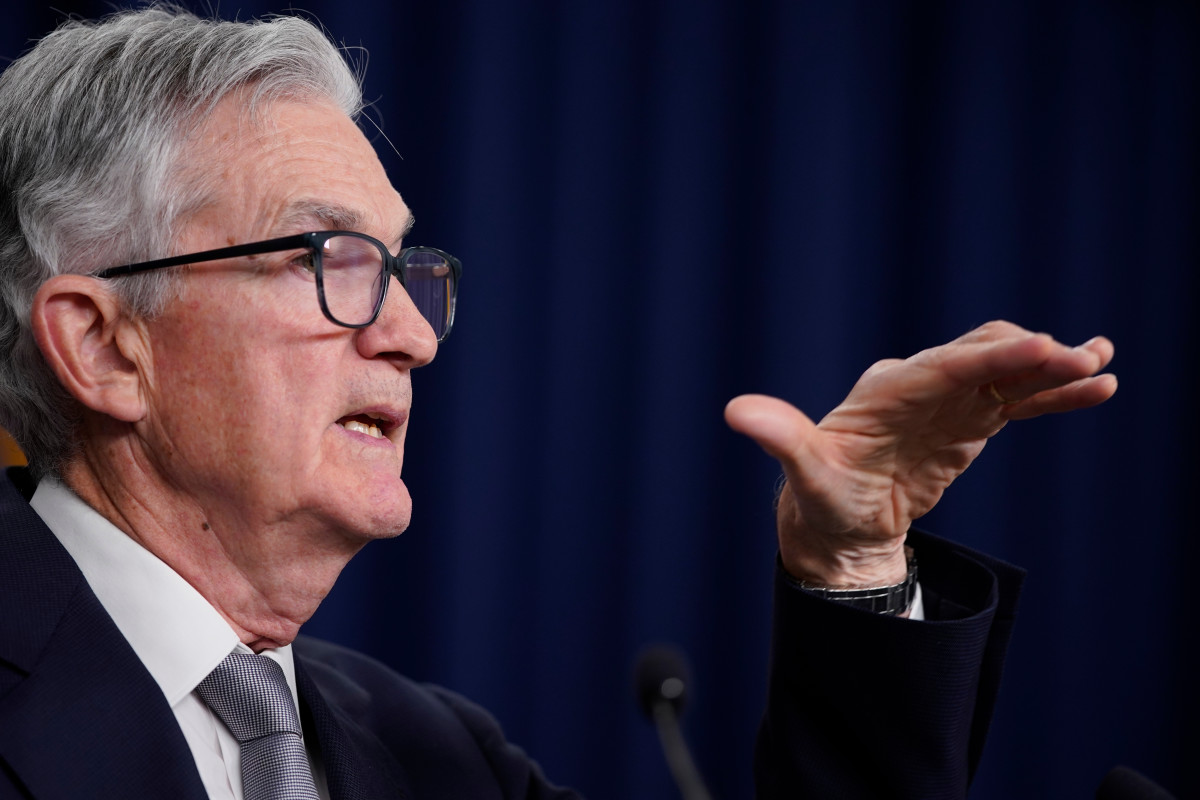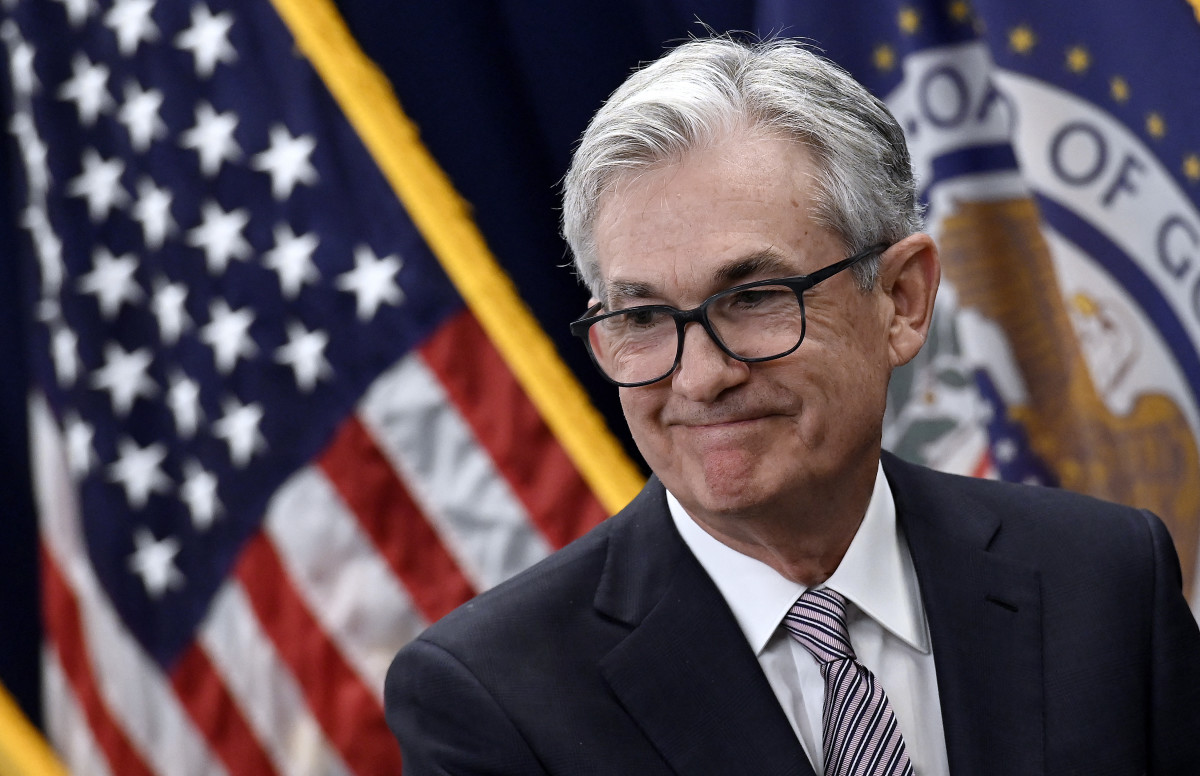
'Vox populi, vox dei' is the lesson most politicians, and no small number of economists, absorbed with their baby food.
Roughly translated from Latin as "the voice of the people is the voice of God,' the 'Vox populi' approach to public opinion polls tends to have long lingering effects on myriad government and economic policies.
In an election year, however, the "voice of the people" influence extends beyond the powers of any known deity and rises to the realm of the universally accepted empirical truth.
That's been starkly evident in the ongoing debate about the strength of the domestic economy, which is typically associated with White House policies (despite the president's limited ability to influence anything beyond big-picture jawboning).
A recent Wall Street Journal survey suggested that less than a third of voters agreed that the economy has improved over the past two years despite an average GDP growth rate of 3.9%, the best in over a decade.

A New York Times poll, meanwhile, indicates that nearly three-quarters of those surveyed think the economy is doing only fair, or poor, despite the fact that U.S. growth has outpaced every other similar-sized market in the world since the 2020 pandemic.
Jobs, growth and stock-market records
The stock market, too, has reached a series of all-time highs, with the Dow Jones Industrial Average flirting with the 40,000-point threshold. That level is more than 33% higher than at the peak of former President Donald Trump's four-year term in office.
When it comes to individual assessments of the economy, inflation pressures tend to trump labor-market strength and stock-market records, if for no other reason than rising prices affect everyone while job losses impact a much smaller number.
That could be why a major CBS News poll showed most Americans consider the economy to be in a better position under Trump, even though employment, GDP growth, and wage gains have all outpaced the pre-COVID averages under his administration.
Related: Fed members' updated interest rate outlooks rock markets
In fact, headline inflation pressures have eased notably since they reached a four-decade peak of 9.1% in summer 2021, powered at the time by COVID supply-chain disruptions, surging energy prices linked to Russia's war on Ukraine, and the billions in pandemic support provided by the U.S. government.
The Fed's delayed reaction to the spike in domestic inflation, which was mirrored in major economies worldwide, led to the most aggressive series of interest-rate increases in a generation and took the central bank's benchmark lending rate to a 22-year high of between 5.25% and 5.5%.
Amid those rate hikes, the normalizing of supply-chain flows from Asia and elsewhere, and a pullback in gasoline prices, inflation slowed to just 3% last summer. But it has remained at or above that pace ever since, powered by stubbornly high costs for rent, cars, and healthcare services.
Inflation pressure is real; labor market is resilient
However, alongside that inflation stickiness has been one of the most resilient, and Wall-Street-defying, labor markets on record.
More than 15 million new jobs have been added to the economy since 2022, with the recent average showing 266,000 new hires every month since June. That's helped keep the headline unemployment rate under 4% for the past two years, the longest run since the Vietnam War.
Data published Friday also showed a much bigger-than-expected addition of 303,000 new jobs over the month of March. More than three-quarters of those added jobs came from the private sector, with average hourly earnings easing modestly to an annual rate of 4.1%.
"With jobs and wages rising and inflation moderating, Americans will continue to spend this year, extending the economic expansion," said Comerica Bank's chief economist, Bill Adams.
While inflation remains stubbornly north of the Federal Reserve's 2% target, wage gains have helped Americans combat headline price increases, at least to some degree.
Related: Jobs report smashes forecasts as red hot labor market confounds Wall Street
Daniel Casali, chief investment strategist at wealth manager Evelyn Partners, notes that so-called nominal labor income, which pulls together wages, hours worked and the broader labor market, rose 6% in March from a year earlier. That's nearly double the rate of inflation over the month of February.
What might be harder for Americans to overcome, however, is the quiet surge in gasoline prices since last fall. That's added 6.6% to the cost of a gallon and taken the national average to a six-month high of $3.591 (as of Saturday), according to the AAA motor club. Further gains might be coming as the U.S. heads into the summer driving season.
The recent leap in global oil prices, which are growing increasingly sensitive to headlines from the ongoing conflict in Gaza as well as Russia's actions in Eastern Europe, is likely to put gasoline prices back on the list of inflation factors and blunt the Fed's, and the market's, hopes for summertime interest-rate cuts.
Who needs the Fed?
But they might not be needed, according to Minneapolis Fed President Neel Kashkari, who told Pensions & Investments late last week that "there's a lot of momentum in the economy right now."
The Atlanta Fed's GDPNow forecasting tool, a real-time tracker of current-quarter growth, suggests that the world's biggest economy is expanding at a 2.5% clip, following on from gains of 3.4% and 4.9% in Q3 and Q4 2023, respectively. Both those figures topped economists’ forecasts.
For an economy to grow at this pace while adding 266,000 new jobs every month with rising wages and slowing inflation, is nothing short of astonishing.
Related: The Fed's stock market influence, like inflation pressure, continues to fade
Whether you attribute that to the policies of the Biden administration or count the cost of the $1.7 trillion budget deficit recorded last year might depend largely on your political affiliation.
As will your thoughts on the impact of immigration. That has helped boost the overall job-addition total and increased the overall level of labor-force participation while keeping wages from spiraling beyond the Fed's current comfort level.
More Economic Analysis:
- Bond markets tell Fed rate story that stocks still ignore
- February inflation surprises with modest uptick, but core pressures ease
- Vanguard unveils bold interest rate forecast ahead of Fed meeting
But what can't be reasonably argued any longer is whether the economy itself is performing well.
"Big fiscal is undeniably a positive force for current growth, and the addition of immigrants to the labor market has clearly increased output and helped hold down wage growth," said Steve Wyett, chief investment strategist at BOK Financial in Tulsa, Okla.
"Going forward it will be a question of how long these factors can remain a tailwind," he added. "For the moment, they allow the Fed to be patient as they think about when to begin recalibrating monetary policy."
The only question now, it seems, is whether the 'Vox populi' will recalibrate their thoughts on the economy.
Related: Veteran fund manager picks favorite stocks for 2024







